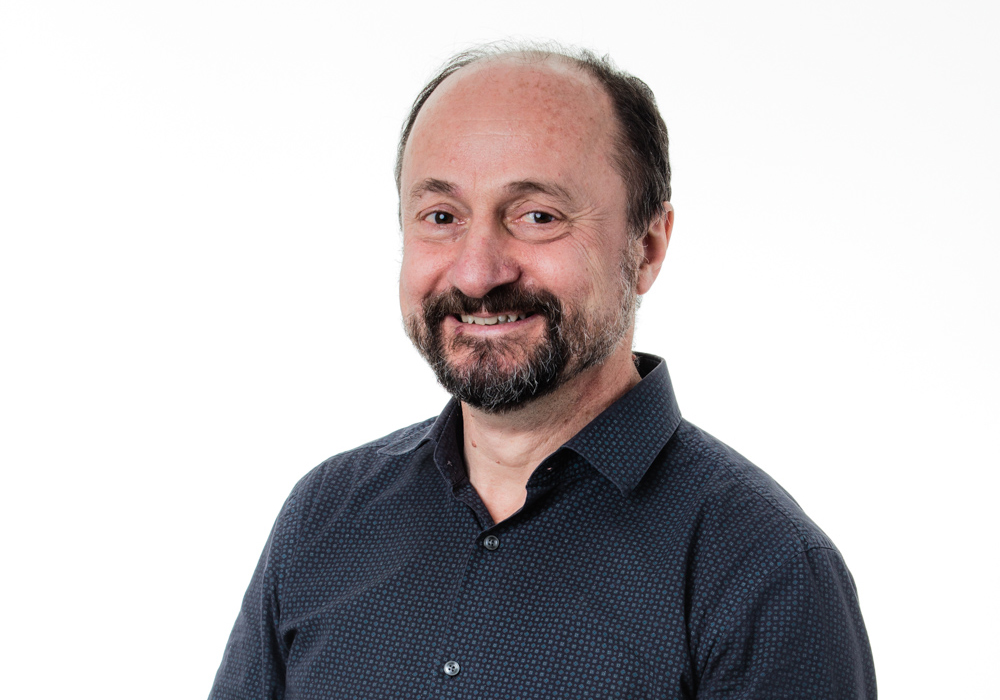In 2015, the UK took a significant step in leading the world against a global health challenge – the announcement of a national Institute focused on dementia research. Six years later, the UK DRI is now made up of over 650 scientists working across seven world-class research centres. As Director, I’m extremely proud of what we have built and the potential to significantly advance our understanding of disease. But over recent years, I’ve felt that the term ‘dementia research’ is perhaps slightly misleading for the work that goes on at the Institute.
The early birds
Dementia is an umbrella term for a set of symptoms which commonly include issues with memory, language, thinking and problem-solving. When we first start to see these symptoms appear in our loved ones, it may well be the beginning of dementia, but really it signals a process that began decades before. By this point, millions of neurons have been lost and sadly it’s looking more and more likely that we’ll be unable to recover them. The best shot we have is to intervene early with treatments targeting the very beginning stages of these diseases. We need to get ahead of dementia.

Making new discoveries
To do this, two major areas must be addressed in my opinion. Firstly, our understanding. There are several neurodegenerative diseases that eventually lead to the dementia, with both shared and unique characteristics and causes. The most common disease for example, Alzheimer’s, is a hugely complex condition. However, a disease whose cause has multiple layers and factors, also has several potential weak spots for drugs and treatments. To find these targets, we must build a greater understanding of these diseases by accelerating our fundamental discovery research into them. This is exactly what we’re striving to achieve at the UK DRI, with researchers working across specialities and disciplines. So although we may speak about treating dementia, we’re really aiming to solve issues way before that, tackle neurodegeneration and feed the pipeline for new, much-needed treatments.
World Alzheimer's Day
Being able to rapidly and accurately detect if someone has a neurodegenerative disease early on, would be a game changer for advancing research, improving clinical trials and, most importantly, prospects for the person affected.Prof Bart De StrooperUK DRI Director
Building an early warning system
But how do we know if someone has one of these brain diseases, if there are no symptoms yet? This is a problem that has plagued this scientific field for decades, but I think we’ve reached a turning point. The theme of World Alzheimer’s Month this year is ‘diagnosis’, an area of research I’m particularly excited by. Being able to rapidly and accurately detect if someone has a neurodegenerative disease early on, would be a game changer for advancing research, improving clinical trials and, most importantly, prospects for the person affected.

We’re taking on the challenge of diagnosis from multiple angles, aiming to develop an early warning system for these diseases. When most people think of a medical diagnostic, a simple blood test naturally springs to mind. The research community has made huge strides with this technology, improving the detection of abnormal disease proteins in the blood with ultrasensitive tools. We’re also getting closer to being able to visualise these disease changes more routinely with advanced brain imaging - seeing where these toxic proteins accumulate and how they’re affecting cells and circuits. One innovative area of diagnostics research where I would like the UK DRI to excel, is in the development of a simple functional test to measure brain circuit activity. Just as we see with exercise stress tests and electrocardiograms used to assess the impact of cardiovascular disorders, I envisage a similar functional test to track how our brain activity changes with age or early in neurodegenerative disease, before symptoms begin. Methods like these will transform the way we carry out clinical trials, from identifying affected people in the first place, tracking the progress of disease to finally assessing whether new treatments are making a difference.
A new era of treatments?
It’s been a big year for Alzheimer’s research. In a landmark decision, the FDA approved the first disease-modifying treatment for the condition - Aducanumab. Although by no means perfect, I feel the drug will usher in a new era of therapeutics, and also pave the way for a diverse range of non-amyloid treatments, such as those targeting the protein Tau or inflammation. If we invest now and harness momentum, I’m optimistic that we’ll see effective treatments in the not-too-distant future. And with better ways to diagnose these diseases earlier, we can help more people than ever before.
Prof Bart De Strooper, UK DRI Director

Article published: 21 September 2021
Illustrations: Copyright owned by UK DRI Ltd
